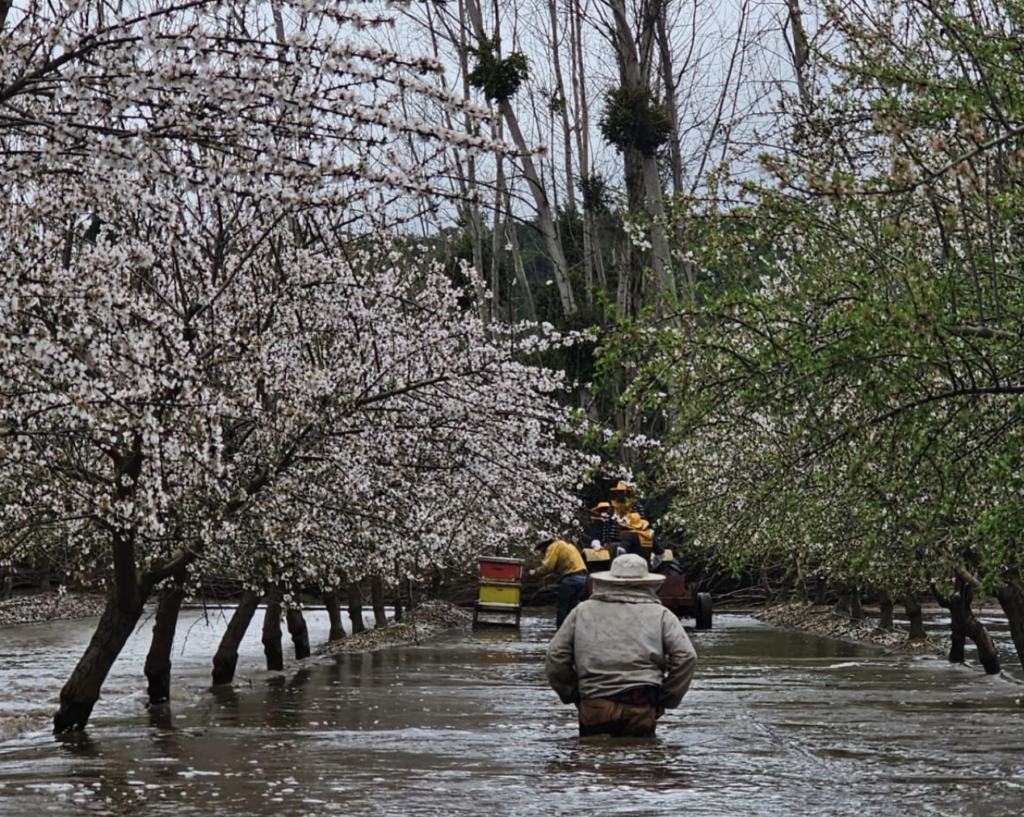Intense rains keep Chilean fruit regions on alert

Just two months after the most damaging weather front that Chilean fruit growers have faced in the last 30 years, damaging 250,000 acres, the President of the Republic of Chile, Gabriel Boric, announced on Monday a new state of catastrophe for the O'Higgins and Biobío regions, as well as economic support measures for farmers as the country faces another intense weather front bringing floods.
O'Higgins Region is Chile's main fruit exporting region, with over 25% of all production.
More rainfall continued in central and southern Chile through Aug. 22-23, so emergency measures will remain, given the floods and overflows.
The National Service for Disaster Prevention and Response is maintaining a red alert from O'Higgins to Ñuble regions in case of more damage.
Ag situation and price increases
Esteban Valenzuela, Chilean minister of agriculture, indicates these floods will impact the price of beans, onions, carrots, melons, watermelons, cherries and raspberries. He adds that the most impacted regions were Maule and the northern part of Ñuble region, as well as in certain areas of O'Higgins.
The President of the National Society of Agriculture, Antonio Walker, adds: "We sympathize with the people who have been affected by the rains and floods. It is very complex to make a balance of damages and losses for now, but we know that the situation in O'Higgins, El Maule, Ñuble and Biobío is very complicated. There are farmers and agricultural workers who have lost their homes and jobs. Many had already been affected by the June frontal system. We are especially concerned about the frontal system forecast for the central-southern part of the country. At least four inches of water would fall, which would further aggravate the situation of fruit, vegetable and wine crops, as well as the water and work infrastructure in the fields."
Meanwhile, the president of Fedefruta, Jorge Valenzuela, is receiving reports from O'Higgins, Maule, Ñuble, and Biobío regions on the impact of rains in fruit production areas.
"Right now, fruit growers are fighting the rains in the orchards," says Valenzuela. "During the past week we have been preparing for this new event and we are trying to give no respite to the rain, which is once again affecting damaged areas."
He warns that it is very difficult to quantify the damage beyond the testimonies received and that the panorama is as alarming "as one could expect."
Fedefruta’s president refers to damage prevention measures to "ensure work and supply in the coming season", deployment of workers and resources, and contingency plans to avoid further damage.
"However, we have already received reports and images of damaged orchards in Maule and Ñuble, with blueberry fields flooded and with producers and agricultural workers trying to sustain, as far as possible, the situation," warns Valenzuela.
Chilean Fruit Exporters and Growers Association
The president of the Chilean Fruit Exporters and Producers Association, ASOEX, Iván Marambio, notes that fruit sector technical teams from exporting and producing companies are in the field, evaluating the conditions of fruit crops in the affected areas, which are mainly concentrated in O'Higgins, Maule, Ñuble and Biobío.
"So far we have received information of some plantations that are flooded by river overflows, as well as overflows of smaller canals. However, we will have to wait until the water recedes to be able to assess any possible damage. For the time being, given that the 2022-2023 fruit export season in the region is pretty much over, there would be no impact on shipments. However, the concern now is focused on the safety of people, especially those who work in the sector, as we know of workers who have had to evacuate their homes," says Marambio.
The ASOEX president adds: "Climate change is a reality that is affecting the country, agriculture and our industry, not only with these rains but also with a prolonged drought that has caused agriculture to move to the south of the country, we are also facing high-temperature events. Therefore, today more than ever we must redouble our efforts to adapt to these changes, and doing so jointly between the private and public sectors is key. As ASOEX, we place ourselves at the disposal of the Ministry of Agriculture for the necessary coordination to face this emergency."
















































